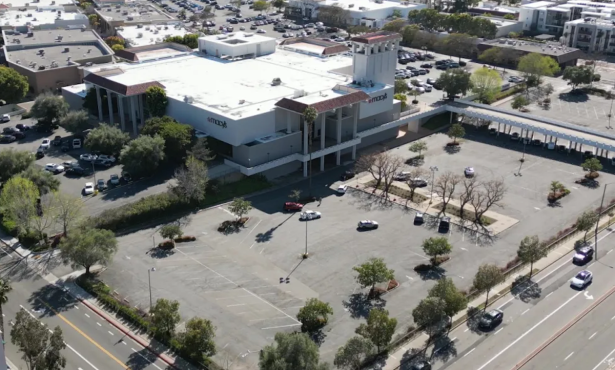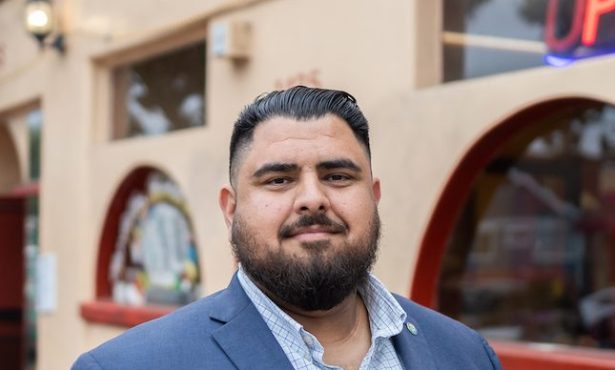Kick the Dog While He’s Down
SURE GLAD I DIDN’T STEP IN IT
SURE GLAD I DIDN’T STEP IN IT: The one great thing about the volcano of oil still erupting in the Gulf of Mexico — 47 days now, but who’s counting — is how it’s stopped political candidates from proclaiming how government should be run more like a business. That it took a catastrophe of biblical dimension to put a cork in this rhetorical flatulence should give us pause about the alleged superior intellect of the species. The most upsetting fact about Big Business is not that corporations are evil, corrupt, or heartless. Rather, it’s that they’re so stupid and incompetent. Up to now, I’ve taken grim comfort in the conviction that the world was run by amoral geniuses, ruthlessly efficient in id-like pursuit of their self-interest. In this cosmological view, the people in charge know what they’re doing, giving the universe some quasi-semblance of order and predictability. Recent events, however, have shaken my faith. Our corporate chieftains have been exposed as feckless incompetents rather than Machiavellian masterminds. This is worse than discovering there is no god. It’s more akin to an atheist discovering that God, in fact, does exist, but that he’s a blithering idiot.

The obvious question is what took me so long? The handwriting was clearly on the wall. Look at our current recession, for example. It happened because all the MBAs with PhDs decided they could sell mortgage loans to people they absolutely knew could never afford to pay them back. They described this obvious pyramid scam with the sort of esoterically intimidating language that only the high priests of high finance can conjure. Trust us, they said, we’re smarter than you. We, of course, were happy accomplices in our own befuddlement. It allowed us to live high on the hog with mirage money concocted via a collective conspiracy of wishful thinking. Not only did we drink the Kool-Aid; we asked for seconds. It was a nice gig while it lasted. But eventually, gravity must prevail and balloon payments must be made. Otherwise, the whole thing explodes. Our ears still bleed from the blast.
In the Gulf of Mexico, it turns out BP officials had assured federal regulators with the Minerals Management Service (MMS) they could handle a blowout 10 times the size of the one we now confront. We’ve since learned that BP had no ability to back up this claim, the technology of spill control at such depths — a mile below the water’s surface — being hypothetical at best. MMS swallowed BP’s happy talk, hook, line, and stinker. Why check? As County of Santa Barbara Energy Division officials noted way back in the 1980s, MMS has a built-in conflict of interest. An agency that collects offshore oil revenues — $13 billion a year — cannot reasonably be expected to regulate the industry on which its livelihood depends. Nor does it help that a culture of incest has long existed between MMS and the oil industry. As recent reports indicate, MMS inspectors have been sexually compromised by oil company employees, professionally compromised by offers of future employment, and routinely bought off with free tickets to college football games, exclusive skeet-shooting events, crawfish boils, and golf tournaments. That recent investigations also reveal that the MMS Gulf office is populated by meth-headed computer porn-junkies is hardly reassuring, but not atypical of many workplaces. Where enforcement of offshore oil safety regulations is concerned, it’s been don’t ask, don’t tell. There are few corners left still to be cut. One federal report discovered that some MMS safety inspectors in the Gulf actually allowed oil rig employees to fill out MMS inspection reports — in pencil — so that the MMS inspectors would know exactly what to write later — with a pen. However startling, this hardly qualifies as new information. In recent years, the federal Inspector General has issued no less than 10 reports on MMS’s regulatory shortcomings, and the Government Accountability Office has written nine.
Thanks to the New York Times, we’ve also learned that BP’s rig had a history of serious trouble dating back to late last June. Company officials warned then that the metal casings that BP wanted to use for the well might collapse under high pressures. Even though these casing did not meet BP’s own safety standards — and might not keep gases from escaping up the well — they were used. This March, BP documents showed company officials were worried that sudden releases of subsurface gases could compromise their ability to safely control the well. This April, BP documents showed that company officials expressed serious doubt that the cement seal around the well shaft — designed to keep these explosive gases from shooting up — would function as required or meet MMS guidelines. In subsequent BP documents, company officials stated just the opposite, though no explanation was provided for their change of heart. In addition, BP discovered that the Blowout Preventer (BOP) had been leaking vital fluids on at least three occasions months prior to the actual blowout. The loss of such fluids was of concern because it indicated the BOP might not function properly should the need arise. In subsequent tests on the BOP, BP officials reduced the amount of pressure to which the BOP would be subjected to nearly half of what it should have been — 6,500 psi instead of 10,000 psi. Guess what? The BOP passed that “test,” but failed utterly when it really counted. But it was just one of seven safety systems that BP now acknowledges either malfunctioned or were ignored prior to this April’s catastrophe.
Eleven rig workers are dead. Many more are maimed and injured. The health impacts on cleanup workers have yet to be tallied, but it won’t be pretty. Lurking beneath the surface of one of the world’s richest ecosystems — home to 40 percent of America’s seafood — is a sprawling petrochemical iceberg that grows bigger every day. No one has a clue how to clean it up. Or, more importantly, how to turn it off. If prevailing corporate practices were to be observed, the responsible BP executives would get a sizable bonus and a raise. In the meantime, we can only hope for divine intervention. And let’s pray that if God does exist, he doesn’t run his Kingdom anything like a business.



